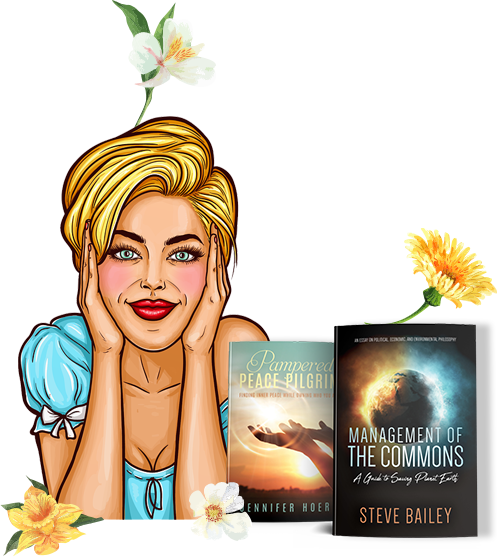
There are many different types of narrators you can choose for your book. First-person narration is when the story is told from the perspective of one character, usually the protagonist. This type of narration can be very intimate, as the reader gets to know the thoughts and feelings of the narrator. Third-person narration is when the story is told from the perspective of an omniscient third person, who knows everything about all of the characters. This type of narration can be more objective, as the reader gets to see all sides of the story.
In every way, you are the protagonist of your book. You are the author of that wonderful world that exists thanks to you. The story you have in mind will surface when you sit down to capture it on the screen or on a blank sheet of paper. The words will flow from your head to your fingers. Regardless of its genre, a literary work will begin to emerge that depends solely and exclusively on you. And to express it you must choose the voice that will put the words in the mind of the reader. Which is the most appropriate? To clear this doubt, now we will explain the types of narrator that you can choose for your book.
Table of Contents
ToggleFirst Or Third Person Narration?
It is question number one: use the first or the third person. Narrating in the first person gives closeness and adds a touch of truth to everything you are telling. Make your readers connect with you while you develop the characters and the story, which they will also make their own.
If you do it in the third person , you leave everything in the hands of an external voice. He will be the one who introduces the characters, their description, their feelings and, ultimately, will bring your story to life.
Omniscient Quasi-Omniscient Narrator or Camera
If you go for third person narration , you need to clarify whether you go for an omniscient or near omniscient narrator, also known as a camera. The first type of narrator knows everything. He not only knows the plot in his present, past or future. He also knows the feelings and thoughts of the other characters and the conversations they had, even though the figure of the narrator was not present.
That feeling of being told the story by someone who knows everything gives the story a closer charge. It seems that the characters are not hiding anything from you and that you get to know them better. They can’t lie or “hide” something from you at a time when the narrator wasn’t around to tell you about it.
The near omniscient narrator or camera also shows you everything except the thoughts of the characters. A nuance to take into account when choosing the most appropriate third person.
When The Narrator Is a Character
If you leave the narration in the hands of a character , you will have a clear example of what a limited narrator is. He will tell the succession of events from his point of view, which will be yours. In this case, he will bring his own feelings and tell the conversations and events in which he participates, without going into those of the other characters.
This situation can change throughout the story, since you can write your book with several characters narrating. The result is the same plot that at times tells one or another character from her perspective and adding her own feelings. This can also happen when you review the work. Sometimes books are rewritten by changing one narrator character for another, resulting in the same story told from different points of view.
In any of these cases, the character speaks directly to the reader, connects with him and is sincere as if he were a friend. An intimate connection is created that falls on the entire work and makes it closer.
Witness Narrator
It may also be the case that the narrator is a character who tells the story without making direct allusions to the reader. He limits himself to recounting without contributing any type of feeling or point of view, except, in any case, his own. That it is a more external narration does not mean that it does not work or that the reader does not like it. This can be seen equally connected with the work, although the narrator does not seem to be addressing him.
The Best Narrator? The One Who Needs Your Story
As you have seen, you have several possibilities when choosing the narrator for that story that has been forged in your mind. The choice will basically depend on the information you need to hide or offer to the reader. Remember that a third-person omniscient narrator knows everything, while a first-person or witness narrator will have more limited knowledge. And so will the reader. But don’t forget to get creative with your keyboard or pen. Allow the story to tell itself, regardless of which voice will be speaking to your readers. If from the beginning you are clear about what that voice is going to be, go ahead. If you had not thought about it, we hope that this post has helped you decide.
Of course, we recommend that throughout the work you do not mix the voices of different narrators in a random or unjustified way. Keep this in mind when reviewing it so as not to create confusion in the reader’s mind. And, once you finish your book, don’t let it fall into oblivion. Think self-publishing. Let everyone enjoy it.
Let Us Meet Your Narrator
Do you have the story? Have you chosen the narrator? Do you want your work to see the light? Well, don’t think about it and take the step to self-publishing. At Vox Ghostwriting we will be happy to help you with professional editorial services such as the reading report , so that you can know the quality of your manuscript before deciding to publish . Thanks to it you will know the suitability of your work in aspects such as the type of narrator, the dramatic tension or the profile of the characters, among many others. In addition, we will analyze if it has commercial potential.





